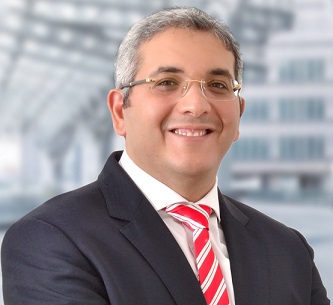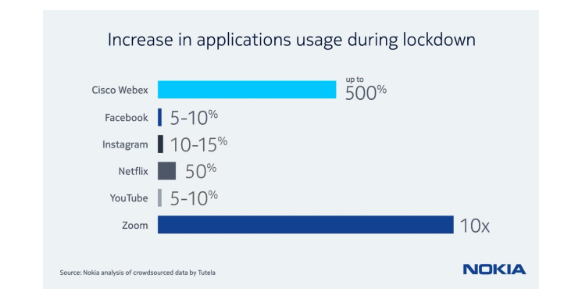 The Middle East and Africa is one of the most diversified telecoms markets in the world. Stretching from Senegal to Pakistan and from South Africa to Iraq, it spans regions with highly advanced connectivity where 5G rollouts are happening at pace, as well as isolated rural areas with some of the most limited connectivity on the planet. The market is therefore a microcosm of the wider world; and at a time when half of the global population has been under confinement, the challenges faced by its telecoms networks are representative of those currently being faced across the globe.
The Middle East and Africa is one of the most diversified telecoms markets in the world. Stretching from Senegal to Pakistan and from South Africa to Iraq, it spans regions with highly advanced connectivity where 5G rollouts are happening at pace, as well as isolated rural areas with some of the most limited connectivity on the planet. The market is therefore a microcosm of the wider world; and at a time when half of the global population has been under confinement, the challenges faced by its telecoms networks are representative of those currently being faced across the globe.
Over just a couple of weeks, we have seen approximately 30% traffic growth in MEA networks – the same kind of growth that we would usually expect in a year. It is not just the scale of the increase that is testing operators, but also the significant behavioral changes as whole populations move abruptly to a new digital way of working and living, leaving city centers deserted and placing unprecedented pressure on residential networks. Across several countries In MEA we have noticed a massive increase of the usage of certain applications, for example Zoom traffic has increased by 1000%, Webex by 500%, and Netflix by 50% – whilst YouTube usage is up 5-10% and social networking apps like Instagram and Facebook have seen spikes in traffic of 5-15%.
Combined, this presents a stark challenge to networks across a varied range of markets; it is a challenge our industry has risen to admirably, but one we can expect to endure.
We have now passed the initial surge in network use. We are seeing demand peaks stabilize as citizens across the world adjust to a new normal, completely reliant on connectivity. But the restrictions we are facing have fundamentally redefined the world’s expectations of networks. Operators should prepare for significantly elevated levels of demand – and crucially, uncertainty around usage patterns – for some time to come.

At Nokia, we have worked closely with operators to help them responding swiftly to the first phase by reducing congestion through network optimization and upgrades; and together, we are now looking to the next phase. We see two key priorities for operators as we adjust to the changes this pandemic has brought:
Scale: The Covid-19 lockdown restrictions will continue to place extreme demands on new areas of the network, particularly indoor and residential locations. Adding capacity in these new “hot zones” through spectrum expansion and additional sites will help prepare for the uncertainty we face moving forward, where in-built scalability and flexibility will be key in both access and transport networks. In MEA, temporary spectrum allocations been granted by local regulatory in many countries to support operators to cope with traffic surge and better serve the local community.
The Covid-19 restrictions have also highlighted the challenges faced by populations across the world unserved or underserved by broadband. Fixed Wireless Access solutions, built over LTE or 5G, are providing an effective way to expand broadband access to reach these communities in the short term.
Stimulate: The priority so far in this crisis has been to respond quickly and decisively to urgent challenges. However, the steps we take today will help pave the way towards our 5G future, and towards eventual economic recovery. In the coming months, operators must ensure they are evolving networks in a progressive way, making the most of network automation to create more flexible network architectures that can be run with minimal human intervention.
Telecoms will play a key role in accelerating the global digital transformation and the advance of 5G, providing a catalyst for the world’s fourth industrial revolution and enabling advanced e-health, e-commerce, e-learning, cloud robotics and more. If we invest now, we can further strengthen our infrastructure, economies and societies to cope in the best way possible with whatever challenges future decades may bring.
Despite the uncertainty ahead, there is one thing we can be sure of – as we move towards a 5G world, our networks will become even more critical to everyday life. 5G networks are likely to underpin practically all critical functions of government and industry. Ensuring resilience will be of the utmost importance; it could quite literally be a matter of life and death.
To support and enable this, we will need to draw on the skills and efforts of the extraordinary teams who have helped us weather the current crisis – field engineers and operations teams who have worked 24/7 to secure and strengthen our vital infrastructure. We must thank our people and invest in them; because as advanced as our technology gets, it will only ever be as good as the people creating and supporting it.
Witten by Mohamed Samir, Vice President of Global Services for Middle East and Africa at Nokia


